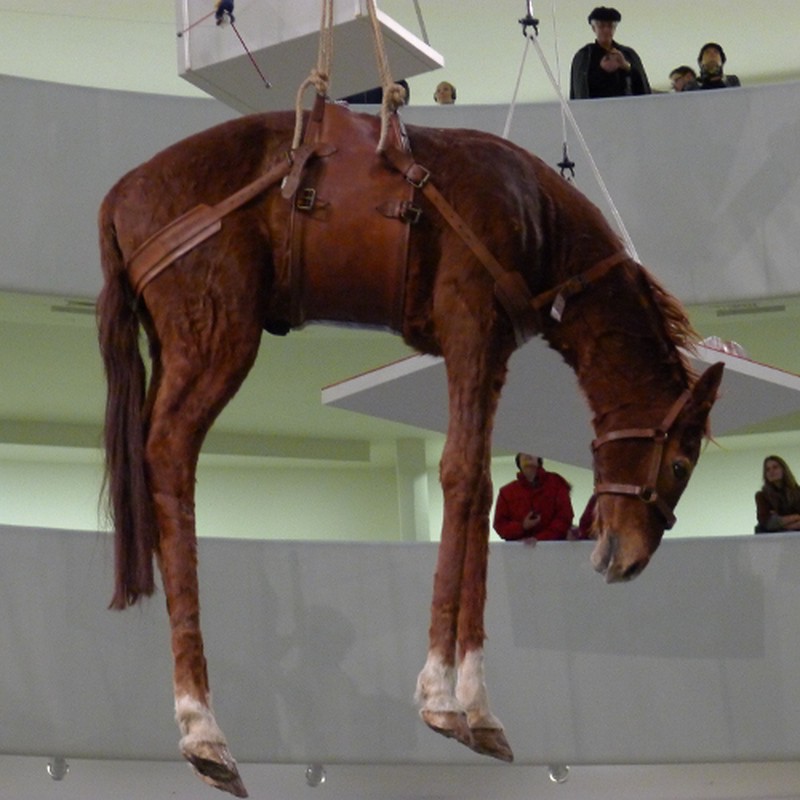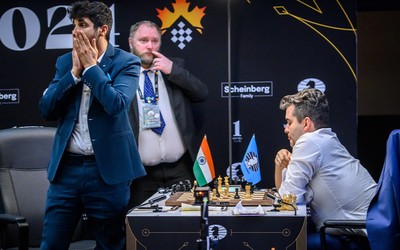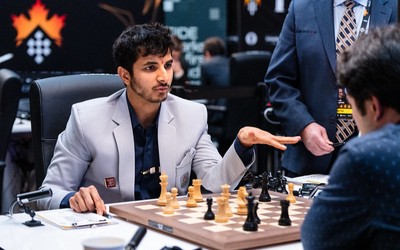
How to start learning chess
The next step after learning how the pieces move.I'm hesitant to dispel the myth that chess is unapproachably complex. It has been useful in making some people think I'm a lot smarter than I actually am. The truth is that chess can be difficult and complicated but no more than many other skills that people master on a regular basis. I'm often asked how to get better at chess. This is difficult to answer and I can't explain it in one sentence. A few paragraphs, however, should be plenty:
The first thing any ambitious new chess student needs to learn is not to hang
pieces. "Hanging" pieces means giving one away to your opponent: for example, placing a rook where it can be captured safely by a bishop. Most games between absolute beginners are decided by these 'one-punch knockouts' where one player gives away an important piece (or checkmate) and the game is essentially over. All the cleverness in the world will not usually save a chess player when his opponent has an extra queen. The inverse mistake is also common, where one player delivers his queen to be taken for free and their opponent fails to notice.

Don't hang your pieces
So: what to do about hanging pieces? Unfortunately, this sort of thing isn't usually solved by reading books or watching instructional videos. This is not a problem of knowledge, it's a problem of skill. A beginner's newborn-baby-chess-brain doesn't have the circuitry to quickly and accurately parse a chess board in order to find pieces in danger. Doing puzzles can help here but the best solution in the very beginning is just to play as much as possible in order to develop the necessary chess circuitry in your brain.
Once you are hanging pieces in ways more complicated than just putting a piece where it can be taken for a free, we have arrived at the wonderful world of tactics. "Tactics" is a somewhat nebulously defined word that refers to various tricks that chess players use to take each other's pieces and checkmate each other's king. "Pins," "Skewers," and "Forks" are just a few of the many gimmicks that can be used to checkmate or de-piece your opponent. This is where the books and instructional videos CAN be useful. It's important to familiarize yourself with all of these little tricks and practice their use with tactics puzzles, small exercises which are designed to test your ability to find tactics, usually by prompting you to find the best move in a chess position. In the past tactics puzzles (also sometimes referred to as "tactics training") were only available in books, but now modern players have access to tactics training online. Few ideas are less controversial in chess than "beginners should study tactics before anything else."

Chess is deep, yo.
Chess is not PURELY tactics despite how important it is at the lower level. The other side of the chess coin is "strategy," or "positional chess." This refers to a series of rules that, all things being equal, one should follow when choosing a chess move. Strategy helps you find moves when there is nothing hanging and no tactics available. To name just a few:
- Control the center
- Knights and Bishops come into the game first
- Castle quickly
- After castling don't move pawns in front of your king.
This list is incredibly long and significantly complicated by the fact that these rules don't work anywhere near 100% of the time. Sometimes the games of great players are difficult to explain to beginners because they so freely violate these general rules. This is, of course, part of the reason that they are great players:they are able to recognize when they can safely ignore the rules. Again, this is an area where books and videos can be useful. The Chess Tips study (part 1, part 2, part 3, part 4). cover 30 of the most important strategy rules.
And now: what in my experience is far and away the most important deciding factor for whether or not a new player improves rapidly or loses interest in the game. Make chess friends! If you hear nothing I've said, hear that. All of things I've written about above are far easier to digest if you have an actual human being who can explain it to you. Go find a chess club in your area. Go compete in tournaments and leagues. Check out the the various chess forums on the internet. Go watch chess streams on Twitch or YouTube and participate in chat. Believe it or not, some people might even enjoy making friends MORE than increasing their chess skill.
Links
Learn chess basics
Play chess
Tactics trainer
Studies
Videos (beginner's section)
Chess on reddit
Chess on Twitch
More blog posts by Lichess

Candidates Round 12: Three-ways Tie in Open, Tan Maintains her Lead
Nakamura and Gukesh catch up with Nepomniachtchi in Open, while Tan maintains a safe distance from e…
Candidates Round 11: Nepomniachtchi, Tan Back in Sole Lead
Nepomniachtchi and Tan lead alone once again, while Nakamura's win puts him in shared 2nd with Gukesh
Candidates Round 10: Nakamura and Caruana Bounce Back, Lei in Shared Lead
Nakamura and Caruana bounced back with wins against Abasov and Firouzja, respectively, while Lei bea…
